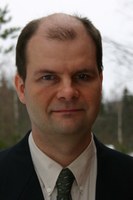This course is fully booked (no waiting list)
Sports and increasingly also eSports, have an enormous global footprint, with billions of practitioners. In addition to recreational participants, there are also tens of millions professional athletes. Sports equipment manufacturers sell billions of dollars’ worth of gear to the public on the backs of sports idols, and companies pay hefty fees to have their logos prominently displayed in international telecasts. The players on teams and individual winners of major events can become international celebrities, with potentially millions of fans all over the world. In a supremely competitive environment, top athletes can earn tens of millions of dollars a year in prize and promotional money. Modern sports venues have also become mass entertainment centers, often subsidized from local tax revenue. In all, even if one wanted to, it is hard, if not impossible, not to be cognizant of some sports events in one’s locality. Sports and eSports are simply part of people’s daily lives all over the world, with many associated socio-economic issues. This course in Sports Economics is a wide-ranging introduction to the subject of sports and eSports. During the course standard economic tools are developed to analyze major aspects of both traditional and electronic sports. No previous course work in economics is assumed.
Exam info and full course description can be found in the course catalogue.
Course specific:
To apply for the course you must either be enrolled in a bachelor's degree, have a bachelor's degree or have passed a qualifying entry examination.
It is recommended (but not required) that the participants understand Basics of Economics.
General:
Exchange Students: nomination from your home university
Freemovers: documentation for English Language proficiency
You can read more about the admission here.

Dr. Esa Mangeloja, Senior Lecturer of Economics (University of Jyväskylä) and Adjunct Professor (Docent) of Economics (University of Tampere). He received a Doctoral degree in 2001, with his dissertation: “Nordic Stock Market Integration.” He also holds Master of Social Sciences (political science) and Bachelor of Theology (University of Helsinki) degrees. In addition to his academic career, Mangeloja has worked several years as a stock market analyst and financial strategist. He studied international finance and econometrics in the University of Alberta (Canada) in 1993-1994. His main research interests are in applied macroeconomics, particularly in questions related to economic growth, finance and economic history. His research has been published in several international scientific journals and books. Mangeloja has been key speaker in various customer and public seminars, worked as an expert in several working groups, written expert’s analyses and actively writes columns to magazines and newspapers. Mangeloja has been awarded as “Good Teacher” (University of Jyväskylä 1998) and “Teacher of the Year” (2006, 2004, 1998, 1997, by Business and Economics Students Association Pörssi ry).